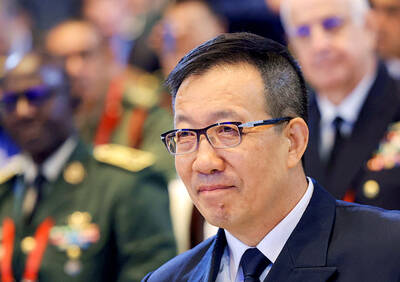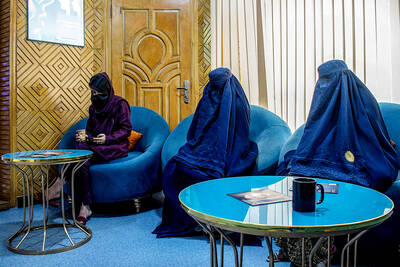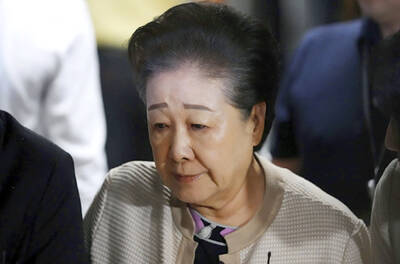New research on the conflict in Sudan’s western Darfur region shows that more than 80 percent of the 300,000 deaths since fighting began in 2003 were the result of disease, not violence.
The findings, published on Friday in the medical journal The Lancet, suggest many among the millions of people uprooted by the conflict could remain at great risk of succumbing to the malnutrition, diarrhea and waterborne diseases that have ravaged their squalid refugee camps even as fighting has ebbed.
Fighting between rebels and Sudanese government forces began in Darfur in 2003, driving 2.7 million people from their homes and creating an enormous humanitarian crisis in the vast desert region.
Sudan’s government has said the casualty figures are exaggerated.
The violence has largely subsided, but banditry and kidnappings of foreign aid workers continue to plague efforts to stabilize the region.
Researchers at the Center for Research on the Epidemiology of Disasters at the Catholic University of Louvain in Brussels, Belgium, put together the study.
They reviewed 107 mortality surveys from 2003 to 2008 and chose 63 that met all of the data requirements for their combined statistical analysis.
The study found the number of deaths from violence peaked in early 2004, a year after the fighting began with a rebellion by ethnic African tribes accusing the Arab-dominated government of neglect.
At the height of the conflict, government-allied militias known as the janjaweed burned down entire villages, government planes dropped bombs on populated areas and reports of rape by the gunmen abounded.
During that period, Darfur was called the world’s worst humanitarian crisis. Since 2005, most of Darfur’s deaths have been the result of disease, and displaced people have been the most susceptible, the review found.
Last March, Sudan’s government expelled 13 of the most important international aid agencies working in Darfur in response to an international court’s arrest warrant for Sudanese President Omar al-Bashir on charges of war crimes and crimes against humanity in Darfur.
“The full effect of the expulsion of non-governmental organizations from Darfur is still not known, but the increased mortality rate during a period of reduced humanitarian deployment in 2006-07 suggests that we should fear the worst,” the study’s authors wrote.
The review found that during that period, from July 2006 to September 2007, there was an increase in the number of people dying from disease. As a possible explanation, the report said that around the same time, there was a 40 percent increase in the number of displaced people, an 18 percent drop in humanitarian aid personnel and a decline in funding for their work. The study’s figures do not take into account those refugees who fled across Sudan’s border to camps in Chad.
The review was funded by the US State Department and the UK’s Department for International Development.
The reporting of Darfur casualty figures by aid groups and international agencies has generated debate in the past, with Sudan’s government accusing its critics of exaggerating the overall numbers of dead and the extent of atrocities.
Most recently, Rodolphe Adada, the former UN peacekeeping chief in Darfur pointed in September to the sharp decline in deaths from fighting in the first half of last year and said the world should no longer consider the conflict a war.
Activists and some Darfur residents disagreed, expressing concern that Adada’s comments would sap the momentum of an international aid effort that remains crucial.

BEIJING FORUM: ‘So-called freedom of navigation advocated by certain countries outside the region challenges the norms of international relations,’ the minister said Chinese Minister of National Defense Dong Jun (董軍) yesterday denounced “hegemonic logic and acts of bullying” during remarks at a Beijing forum that were full of thinly veiled references to the US. Organizers said that about 1,800 representatives from 100 countries, including political, military and academic leaders, were in Beijing for the Xiangshan Forum. The three-day event comes as China presents itself as a mediator of fraught global issues including the wars in Ukraine and Gaza. Addressing attendees at the opening ceremony, Dong warned of “new threats and challenges” now facing world peace. “While the themes of the times — peace and development —

Decked out with fake crystal chandeliers and velvet sofas, cosmetic surgery clinics in Afghanistan’s capital are a world away from the austerity of Taliban rule, where Botox, lip filler and hair transplants reign. Despite the Taliban authorities’ strict theocratic rule, and prevailing conservatism and poverty in Afghanistan, the 20 or so clinics in Kabul have flourished since the end of decades of war in the country. Foreign doctors, especially from Turkey, travel to Kabul to train Afghans, who equally undertake internships in Istanbul, while equipment is imported from Asia or Europe. In the waiting rooms, the clientele is often well-off and includes men

COMFORT WOMEN CLASH: Japan has strongly rejected South Korean court rulings ordering the government to provide reparations to Korean victims of sexual slavery The Japanese government yesterday defended its stance on wartime sexual slavery and described South Korean court rulings ordering Japanese compensation as violations of international law, after UN investigators criticized Tokyo for failing to ensure truth-finding and reparations for the victims. In its own response to UN human rights rapporteurs, South Korea called on Japan to “squarely face up to our painful history” and cited how Tokyo’s refusal to comply with court orders have denied the victims payment. The statements underscored how the two Asian US allies still hold key differences on the issue, even as they pause their on-and-off disputes over historical

BRIBERY ALLEGATIONS: A prosecutor said they considered the risk of Hak-ja Han tampering with evidence to be very high, which led them to seek the warrant South Korean prosecutors yesterday requested an arrest warrant for the leader of the Unification Church, Hak-ja Han, on allegations of bribery linked to the country’s former first lady and incitement to destroy evidence. The move came a day after the 82-year-old was questioned over her alleged role in bribing former first lady Kim Keon-hee and a lawmaker. Founded in 1954 by her late husband, Sun Myung Moon, the Unification Church has long been the subject of controversy and criticism, with its teachings centered on Moon’s role as the “second coming” and its mass weddings. Followers are derisively referred to as “Moonies.” However, the church’s